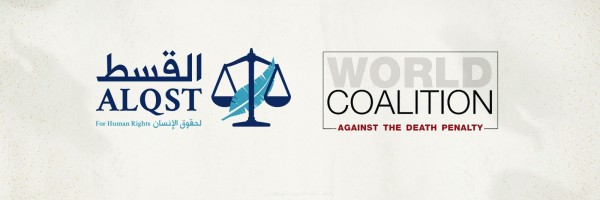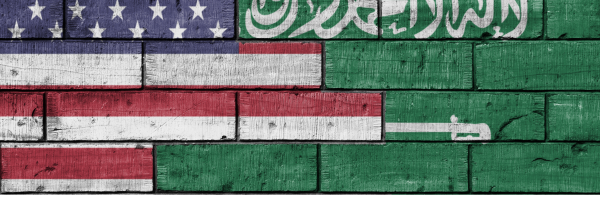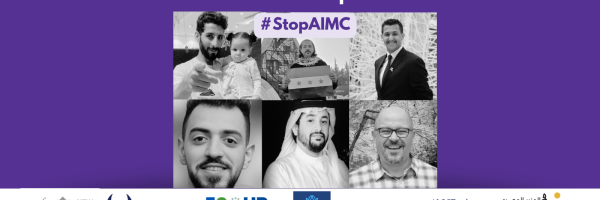Ahead of the new English Premier League season starting this weekend, five Gulf-focused human rights NGOs have written to the Premier League and the UK government to express their deep concern over the growing trend of Gulf state ownership of Premier League clubs, calling for such ownership to be prohibited and phased out of English football.
Citing the Saudi Arabia-led takeover of Newcastle United and Manchester City’s Emirati owners in particular, as well as Sheffield United’s Saudi Arabian owner and Manchester United’s potential Qatari takeover, the NGOs – which closely monitor human rights in the Gulf region – voice concern that the political, social and cultural power associated with ownership of Premier League clubs grants such states undue influence, and provides cover for them to continue to flagrantly commit grave human rights abuses.
In their letters to Premier League CEO Richard Masters, the Department for Culture, Media and Sport, and the Department for Business and Trade, the NGOs welcome the recent strengthening of the Premier League’s owners’ and directors’ test, as well as the UK Government White Paper on reforming club governance. They point out, however, that these do not set sufficiently objective and robust criteria for club ownership, and that they fail to clarify whether they will prevent future state takeovers of Premier League clubs. As such, the groups call on the Premier League and the UK government to implement the necessary safeguards to prevent the takeover of English football clubs by individuals or entities susceptible to the influence of state actors or associated with human rights violations.
Addressing Newcastle United’s 2021 takeover by Saudi Arabia’s Public Investment Fund (PIF), the NGOs highlight that this took place in spite of concerns about Saudi Arabia’s human rights record. Regressive developments since then include the execution of 196 individuals in 2022 (the highest number in decades), a wave of unprecedentedly long prison sentences handed down to individuals for peaceful activity online, and ongoing violations linked to the Neom megacity project.
Duaa Dhainy, Researcher at the European Saudi Organisation for Human Rights (ESOHR): “The relative spotlight on Saudi Arabia’s human rights record at the time of Newcastle United’s takeover has since subsided somewhat, and we have instead seen a catalogue of rights abuses continue to take place, including death sentences for juvenile offenders and lengthy prison sentences for women’s rights activists like University of Leeds PhD student Salma al-Shehab.”
Whereas the Premier League justified allowing the PIF’s takeover on the basis that it had “received legally binding assurances that the Kingdom of Saudi Arabia will not control Newcastle United Football Club”, the NGOs highlight that the PIF is in fact inseparable from the Saudi state. They point to a recently unearthed interview with PIF Governor Yasir al-Rumayyan in which he stated that decisions taken by the PIF Board can be overruled by the Saudi King, and the recent legal dispute between PGA Tours and PIF-backed LIV-Golf during which LIV-Golf’s lawyers described the PIF as “a sovereign instrumentality of the Kingdom of Saudi Arabia”.
Lina Alhathloul, Head of Monitoring and Advocacy at ALQST for Human Rights: “The Premier League’s ‘assurances’ that the PIF is independent of the Saudi state are not worth the paper they are written on – one only has to look at who its chair is: the Crown Prince himself, who can veto any decision he doesn’t agree with. The Premier League’s owners’ test is clearly not fit for purpose, and is in urgent need of revision.”
The letters also address Manchester City's owners, Abu Dhabi United Group (ADUG), whose owner, Sheikh Mansour bin Zayed Al Nahyan, is Vice President and Deputy Prime Minister of the UAE. In the 15 years since ADUG’s takeover of the club, Mansour’s government has engaged in a sustained and vicious crackdown on dissent at home, arresting scores of peaceful government critics and reform advocates, the majority of whom remain in arbitrary detention.
Hamad al-Shamsi, Executive Director of the Emirates Detainees Advocacy Center (EDAC): “While Man City’s owners celebrate their historic treble winning season, Emirati human rights defenders such as Ahmed Mansour remain in solitary confinement in prison, simply for peacefully calling for reform.”
In 2016, Manchester City Council leader Sir Richard Leese reportedly described the UAE investors as “exemplary partners”. However, Manchester City FC were recently charged with more than 100 breaches of Premier League Rules in relation to the club’s finances over a nine-year period, including non-compliance with UEFA’s Financial Fair Play Regulations.
The NGOs’ letters also draw attention to other investors with close ties to Gulf states who already have significant links to clubs in the Premier League, illustrating a growing trend. Sheffield United, who will be playing Premier League football this season, are currently owned by Saudi Arabia’s Prince Abdullah bin Musaid Al Saud, and Manchester United are in ongoing takeover discussions with Sheikh Jassim bin Hamad bin Jassim Al Thani, a member of the ruling family in Qatar, despite Qatar’s poor human rights record.
Khalid Ibrahim, Executive Director of the Gulf Centre for Human Rights (GCHR): “Allowing state actors with well-documented massive human rights violations, such as Saudi Arabia, the UAE and Qatar, to use English football for sportswashing poses a serious risk to the integrity of the beautiful game. Unless the Premier League and UK government take concerted action, other states with similarly dubious human rights records will be looking to follow suit.”




